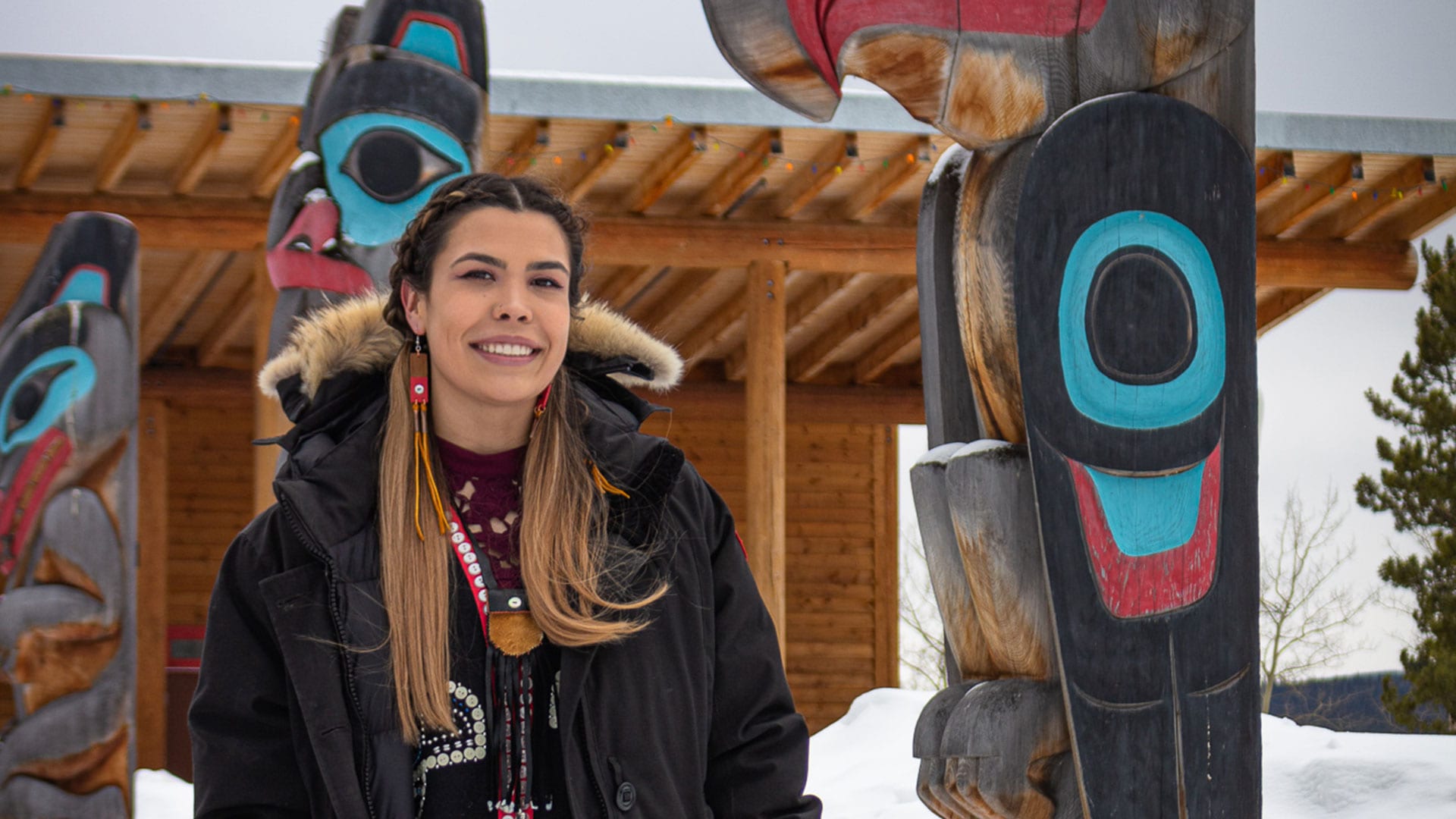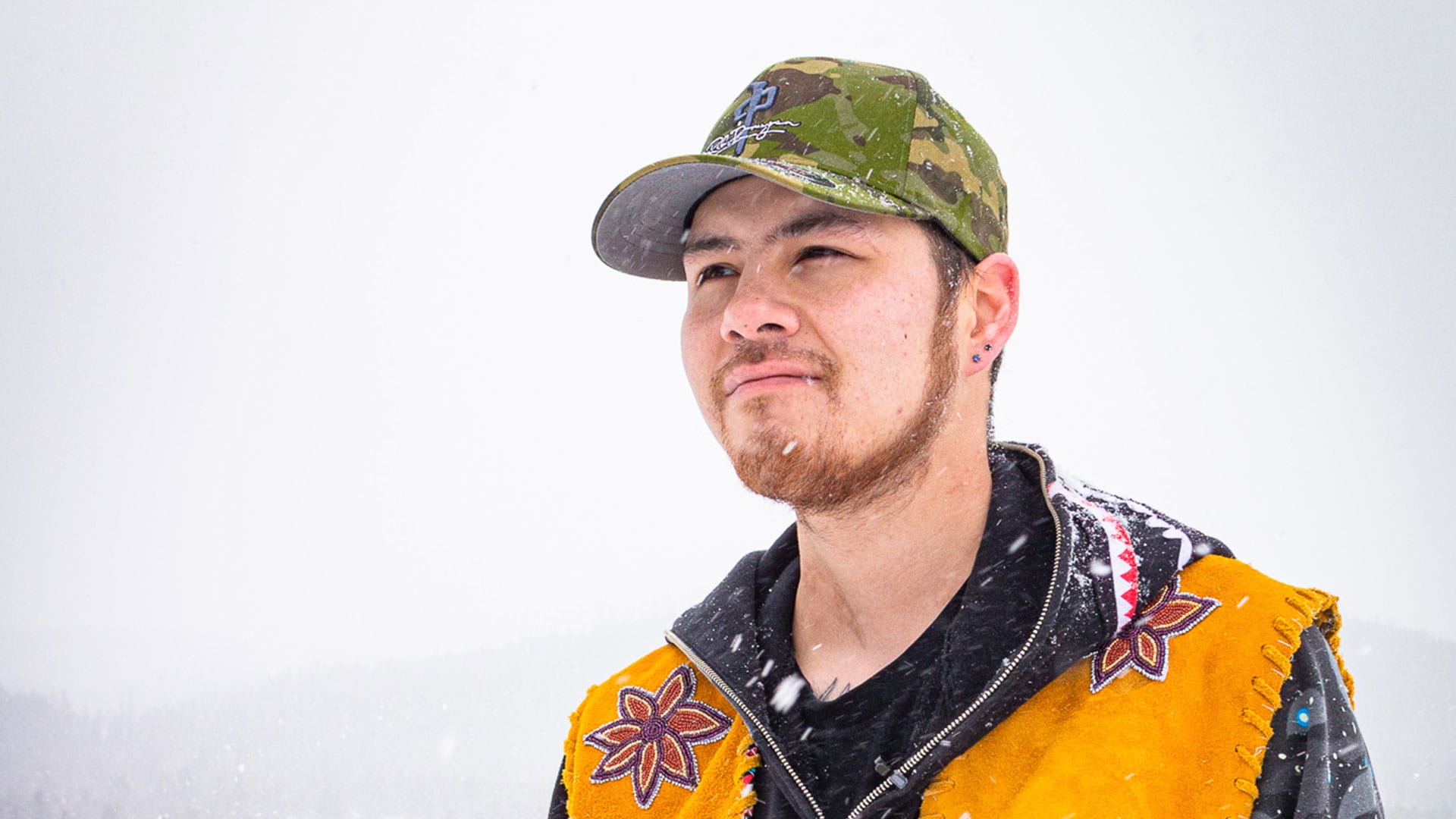Autum Jules is a member of Teslin Tlingit Council (TTC), a small First Nation in southern Yukon.
For the last several years her First Nation has experienced low Yukon River salmon stocks – an important traditional food source for her people.
It’s not known why exactly these salmon stocks continue to decrease, though climate change is a likely contributor, according to a study published earlier this year.
For instance, Chinook salmon, which were once of the most bountiful fish in the Yukon and a food staple for TTC citizens, have “rapidly declined in response to increasing sea surface temperatures and other factors across diverse model assumptions and climate scenarios,” said the report.
It’s had a devastating effect on Jules and her First Nation.
“We’ve actually have done a voluntary closure for the last decade, so that means the younger generations aren’t being able to learn our traditions of harvesting the salmon,” she says.

The low number has also resulted in TTC flying in its salmon from Atlin, B.C.
“It hurts our elders to see that, and it hurts our elders to not be able to pass on that tradition,” she tells APTN News.
Youth leading charge
It’s issues like this one that compelled the 24-year-old to join the Yukon First Nations Climate Action Fellowship.
The 20-month fellowship, which was founded by the Council of Yukon First Nations, Assembly of First Nations Yukon Region and Youth Climate Lab, aims to empower 14 First Nations youth aged 23 to 30 to tackle the challenges of climate change through traditional values, teachings and practices.
The fellowship is in the early stages for now and mostly consists of online teachings and meetings.
It will eventually include more in-person and on-the-land programming, culminating in the co-creation of a First Nations Climate Vision and Action Plan in the spring of 2022.
According to the fellowship’s website, the plan “can guide Yukon First Nations and other communities, governments and industry in responding to the challenges of climate change with spirit and actions that reflect a Yukon First Nations worldview.”
Jules says so far the fellowship has been positive.
“I think the part that’s been really eye opening for me is hearing other people’s stories and other fellow’s stories and what they’re going through, what their communities are going through and how they’re like a rallying cry that we can work together,” she says.
“It’s just building our capacity to be land stewards to the future.”
She says she plans to use the fellowship as a way to draw attention to climate issues affecting Yukon First Nations communities like her own.
“Hopefully in the years forward that with the powerhouse that the fellowship is doing and our strong voices that we can move forward with that in a better way,” she says.

Jessi Whalen of Kwanlin Dun First Nation in Whitehorse says he joined the fellowship because the effects of climate change could be devastating.
“No more hunting, no more fishing, no more fresh air, no more clean water. There’s a lot of things that would happen,” he says.
“It actually has a big impact (already) on our culture and traditions especially if you go further up north.8 There’s lots of elk, caribou and moose and they’re migrating because of the warmth, they’re not taking their usual routes anymore and they’re not being seen as much.”
He’s says it’s important that First Nation youths’ voice are heard.
“Well, honestly, because who else will (fight climate change)? I haven’t seen many other people do it,” he says.
“We’re going to be the next generation teaching the youth when we’re older we kind of need that knowledge and teachings we’re being taught.”









